ADRA Provides Medical Assistance to Dozens of Migrants in Mexico
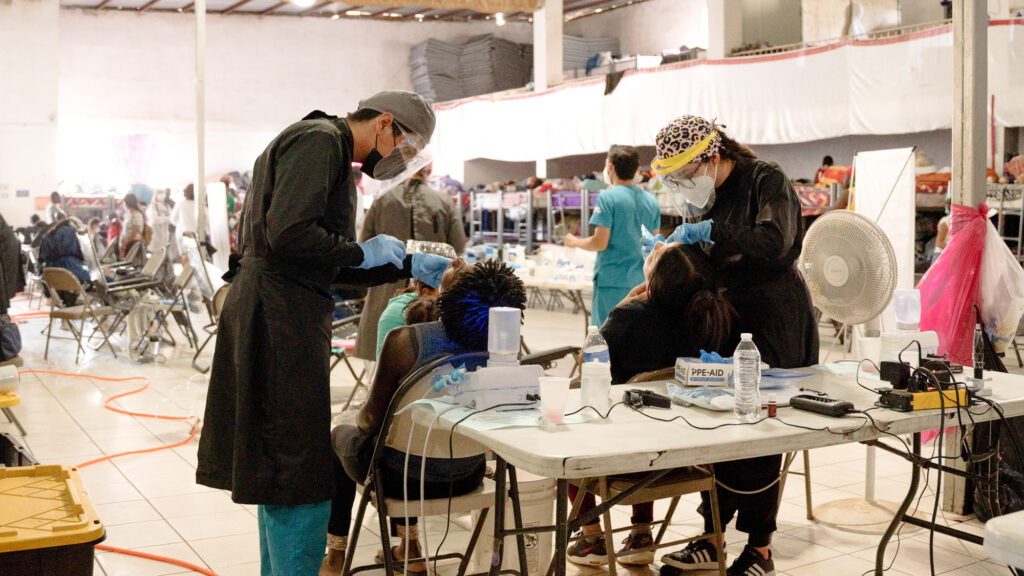
Adventist medical professionals perform dental services at one of two shelters in Tijuana, Mexico, where ADRA has been running a project since March to assist migrants traveling from Central America and other parts en route to North America. [Photo: Baja California Conference]
The Adventist Development and Relief Agency (ADRA) in Baja California in coordination with Adventist health professionals and volunteers from the Autonomous University of Baja California recently joined efforts to provide medical services to dozens of migrants in two shelters in Tijuana, Baja California, Mexico.
The ADRA initiative, which has been running since March of this year, consists of assisting migrants with much needed medical services, who have left their home countries of Haiti, Honduras, Nicaragua, Guatemala, El Salvador, and across other states in Mexico, seeking temporary shelter in transit to North America.
This time 50 volunteers offered nutritional care, dental services, and psychosocial support as well as workshop activities for children. Volunteers were coordinated by a group from ADRA’s Emergency Response Team (ERT), in collaboration with Adventist Medical Ministry in the region.
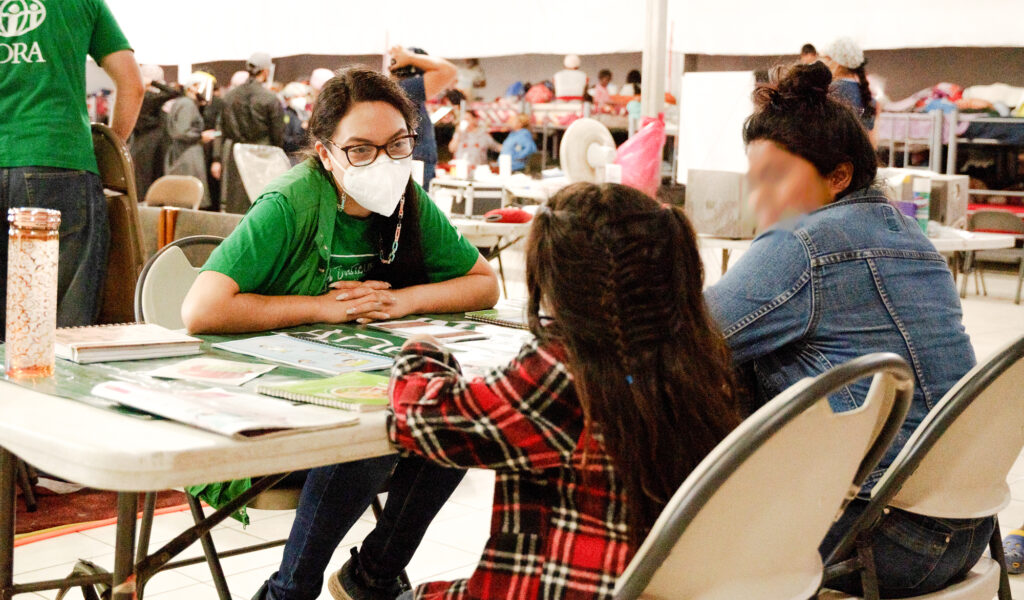
Itzel Gómez of ADRA’s Emergency Response Team gives nutritional information to patients. [Photo: Baja California Conference][Photo: Baja California Conference]
A handful of health professionals travel once or twice a month or sometimes more to provide services to a dozen or so migrants during the four hours they visit the shelters, he explained.
Tijuana is known as one of the main borders in Mexico and according to the Secretary of Government in 2021, there were 31,201 migrants from outside of Baja California were identified in migrant stations. That means that the number of those registered in the immigration offices or shelters is estimated to be greater than reported, said King.
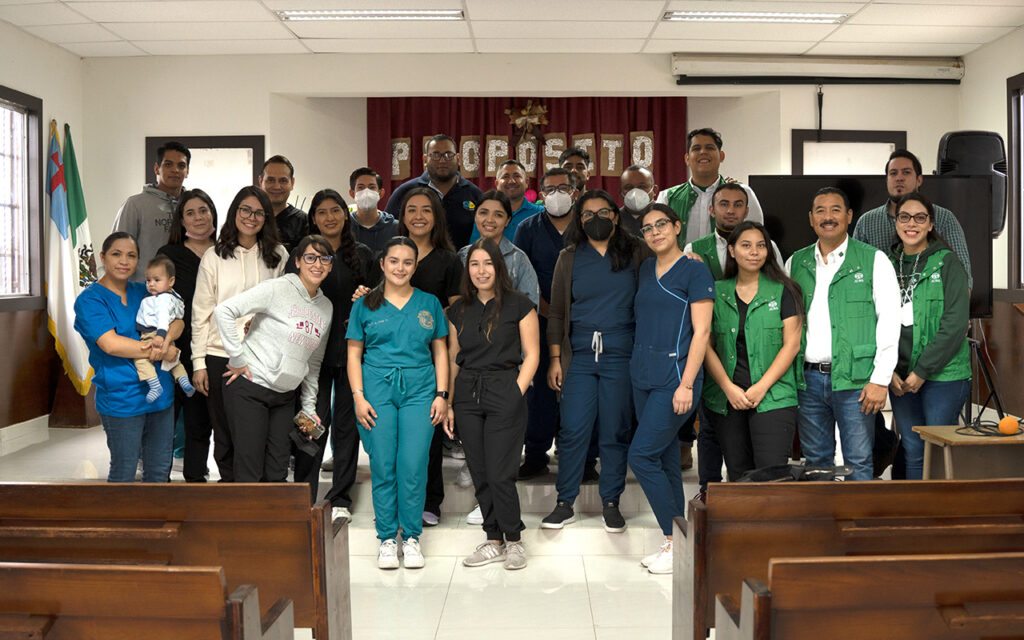
Part of the group of volunteers who worked together to assist migrants in Tijuana, Mexico recently. [Photo: Baja California Conference][Photo: Baja California Conference]
During the six hours that the large health brigade took place on Sep. 17, the nine chairs designated for the dental services section were kept filled with dozens of patients moving quickly, said Josue Armenta, coordinator of the medical ministry. “We were very happy to have seen 64 patients with various dental needs, including some with serious conditions,” said Armenta. There were about 181 persons who benefitted from the medical services initiative.
“God has blessed us with the opportunity to have more mobile equipment for these types of impact [assistance],” said Armenta. “We now have an x-ray machine that allows us to see the oral condition deeper of each patient so that we can provide better medical attention.”
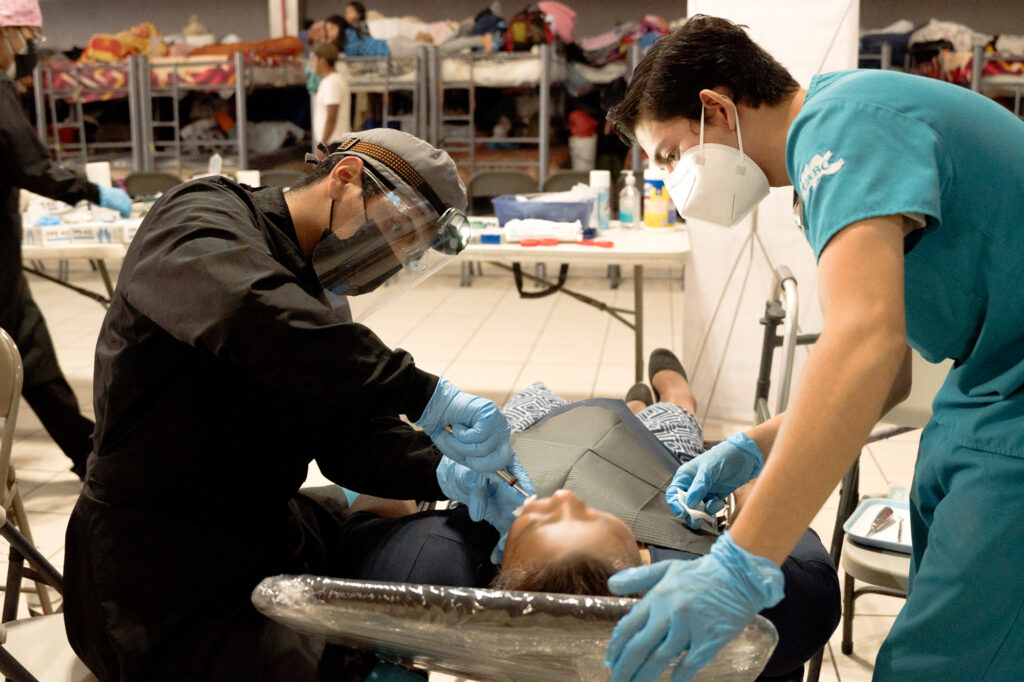
Mrs. Guadalupe N. is being treated by volunteers of the Autonomous University of Baja California, on Sep. 17, 2022. [Photo: Baja California Conference]
“Thank you for coming to care and support us,” said Guadalupe N., a 60-year-old woman who uses a walker. She travelled with her children from Honduras. They have been staying at the shelter for over a month. “I have several health problems but thanks to this visit, my tooth doesn’t’ hurt anymore,” Guadalupe said.
Among the member so the ERT was Veronica Robles who has a education degree and assists in the psychosocial attention to minors. Robles has seen great emotional needs at the shelters and is happy to provide support during the hours she visits with the team. “The fact that I was able to share with them a little of my knowledge and above all show love makes me feel satisfied,” said Robles. “I worry though as to the types of persons they will become if they do not receive a follow-through when it comes to their mental health.”
Coined as “Let’s Go Together,” the ADRA project will see more joint larger efforts to continue providing medical assistance to migrants in the coming weeks and months.
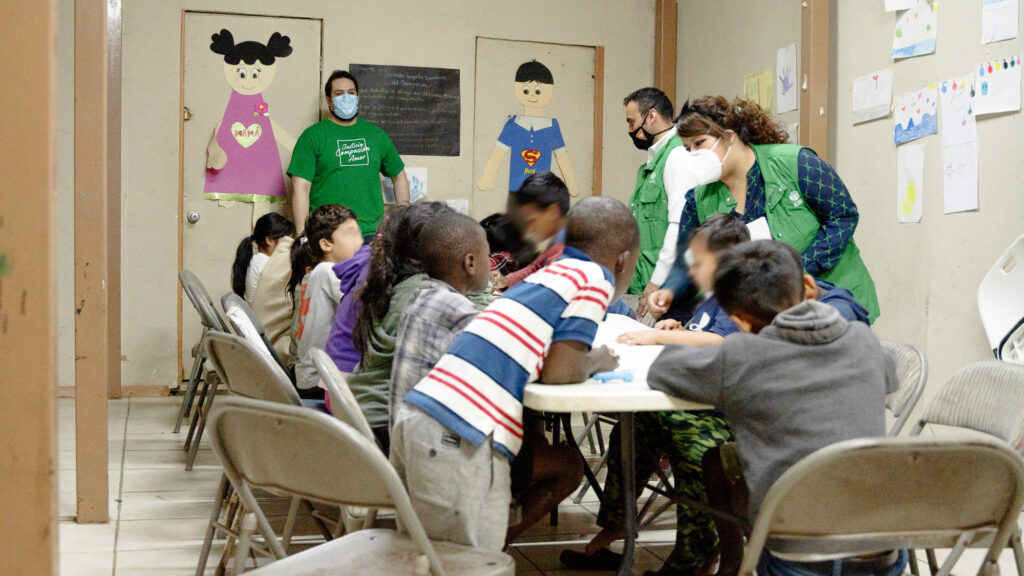
Volunteers Veronica Robles, Diego Tarango and Cristian Aviles give psychosocial attention to a group of young children during the visit at the shelter. [Photo: Baja California Conference]